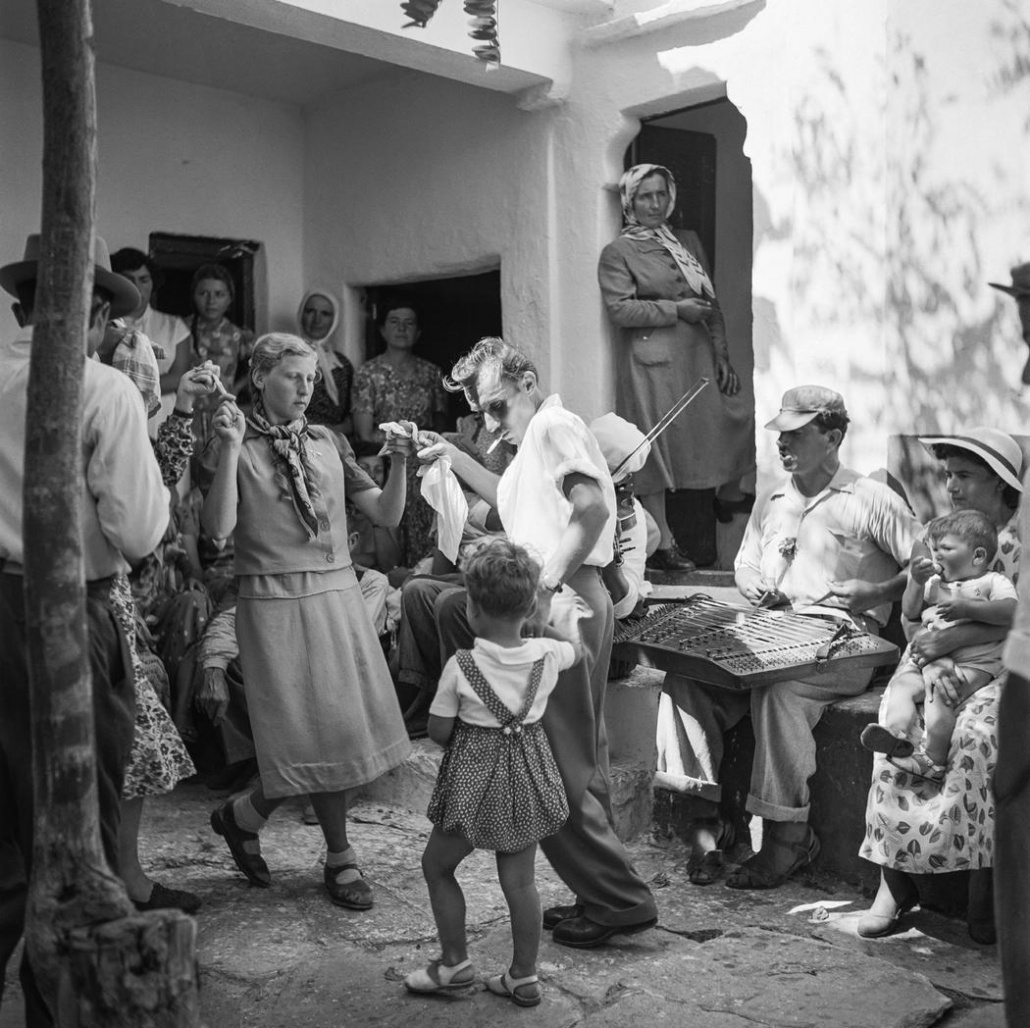
Διαβάστε την ελεύθερη πτήση στα ελληνικά.
Sushana, you see, was a ghostly figure that lived inside the mind of one countryman of ours, from Plagia, during the previous century. Any time a Saint was being celebrated, her inspirer took her with him, on foot, to the festival to introduce her to the villagers. Soon, everyone had heard of her, loved her and anticipated the time when they could see her again.
More than anyone, the kids that, as soon as they got a glimpse of the exhausted Ikarian, started yelling on the top of their lungs:
- Sushana! Sushana is coming!
The man’s actual name was Amorginos and he lived in Plagia, but everyone knew him by his nickname “Foukaras” (i.e. the poor devil).
So, Foukaras, when the festivities were at their peak, used to walk and stand in the middle of the dance floor and, in all seriousness, ask for everyone’s attention. Everybody, then, ran to take a seat. A couple of men brought a table, rest it on the dancefloor and Foukaras laid on his back on top of it. He threw a white linen on him, wide enough, so it covered him completely, and then, with his feet on the air and his hands held up high, started executing intricate dance moves. His hands and feet formed a magic figure, that changed shapes very quickly and looked like a swaying dancer. This strange dance was sometimes accompanied by the music of Kastanias, from Dafni, the most famous lyra player of the time. The kids bursted into laughter, while the adults where enjoying the show. It really was a very unique way of entertainment, totally different of the traditional folk dances and songs. An one-of-a-kind act.
As soon as the show was over, Foukaras, took out a dish and asked for a small reward. With any money he made he bought his meat and wine, and joined everyone else to the festivities.
After Foukaras’ death, no one ever revived Sushana again. Nobody even knows who taught him the act. It could be his own original, spontaneous idea…
But it could also be related to the following:
… contrary to what happened during the celebrations of every other God, joining the celebrations of Bacchus demanded a change in the identity of the worshiper.
… every form of poetry (epic, tragedy, comedy, dithyrambic) and even music to its largest part, according to Aristotle, consist of a form of mimicking. A representation, that is, of reality. Aristotle considered mimicking, the ability, that is, of a person to depict anything of interest, a huge creative force.
… Because any form of mimicking leads to knowledge, says Aristotle, all humans enjoy it. Especially those acts performed by others, as this gives us a chance to learn. This struggle of man to understand the world around him through mimicking led to the spontaneous creation of the first spectacles. In fact, more than any other form of art, the theater is born to be performed and always evolves due to the human need for spectacles: θέωμαι (to view), θέα (view), θέατρο (theater)
Despina Simaki for ikariamag.gr








